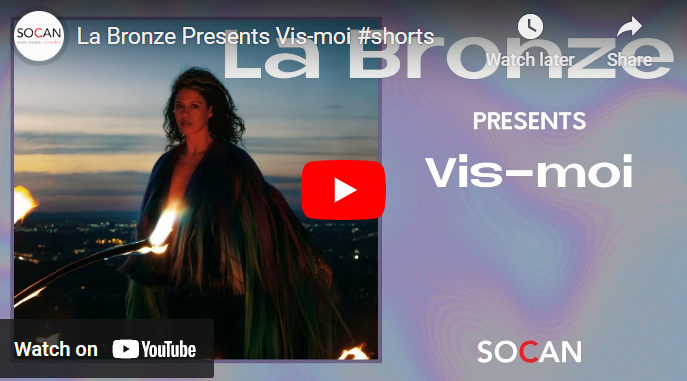Nadia Essadiqi, a.k.a. La Bronze, launches her third album, Vis-moi, on March 18, 2022. On her first project for the Audiogram record label, the Moroccan-Canadian singer-songwriter and multi-instrumentalist explores a wide range of rhythms and musical colours. Three of its 13 songs were written while she participated in the 2019 edition of the SOCAN Kenekt Québec Song Camp. We connected with her just a few hours before she was to leave for France on a promotional tour, as she discussed the creative process behind her latest electro-pop offering.
Photo by Adrian Villagomez
